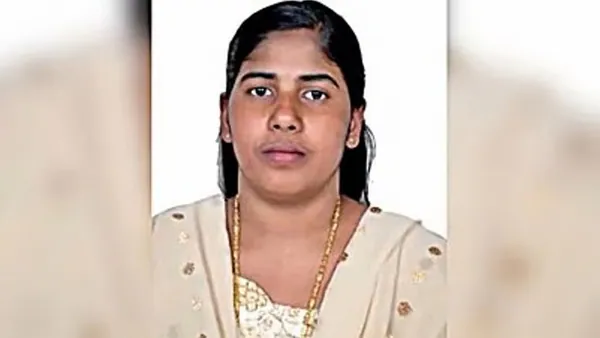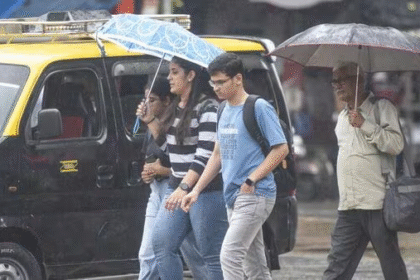The Fight for Life — Nimisha Priya, the Indian Nurse on Death Row in Yemen
On July 2025, a reprieve arrived in the form of a delayed execution. Nimisha Priya, an Indian nurse from Kerala convicted in Yemen and sentenced to death, was granted a temporary postponement of her execution following a diplomatic appeal by the Government of India. The decision, though not an acquittal, came as a fragile moment of relief for Priya’s family and for a network of human rights organizations that had been tirelessly advocating for her life.
The postponement, granted by Yemeni authorities after sustained bilateral engagement, is a stark reminder of the vulnerabilities faced by migrant workers in conflict zones, and of how international diplomacy, domestic law, and the complexities of Islamic jurisprudence intersect in fraught circumstances like this.
A Life Interrupted: Nimisha’s Journey from Kerala to Yemen
Nimisha Priya’s story is not unlike that of many skilled healthcare workers from Kerala who seek better-paying opportunities in the Gulf and Middle East. After completing her nursing degree and working in Indian hospitals for a few years, Nimisha took up a job in Yemen — a country that, despite its ongoing civil conflict, continued to rely heavily on expatriate medical professionals for its overstretched healthcare system.
Her move was motivated not only by financial need but also by a desire to support her daughter’s future education and her aging parents. Like many migrants, she hoped to endure a few tough years abroad in return for long-term economic security.
However, what unfolded in Yemen went terribly wrong. According to court documents and consular briefings, Nimisha became embroiled in a personal and legal conflict with her Yemeni employer. The details of the case remain deeply controversial and contested, but Yemeni authorities eventually charged her with the murder of her employer, citing evidence that has since been questioned by international legal observers.
The Conviction and the Death Sentence
In 2020, a Yemeni court convicted Nimisha Priya of premeditated murder, sentencing her to death by execution under the country’s implementation of Shariah law, which allows for capital punishment in certain criminal cases. Her legal defense argued that the death occurred as a result of self-defense and a prolonged pattern of abuse by the deceased, but the court rejected those claims.
Her conviction came at a time when Yemen’s legal system was operating under severe strain. The civil war between the Houthi movement and internationally recognized government forces has left institutions fractured and access to legal recourse minimal, especially for foreign nationals.
For Indian officials, the challenges of engaging diplomatically with a government that does not fully control all parts of the country added further complexity to the case. Yemen, in many regions, is governed by parallel legal and tribal structures, and efforts to negotiate require deep understanding of both formal diplomatic channels and local customs.
The Indian Government’s Diplomatic Intervention
The Ministry of External Affairs (MEA) in India had been quietly working on Nimisha’s case for years. However, the public pressure surrounding her possible execution increased dramatically in 2023 and 2024 when human rights organizations and citizen-led campaigns in India and abroad began drawing widespread attention to her plight.
On humanitarian grounds, and in recognition of her right to a fair trial and due process, the Indian government escalated its outreach to Yemeni authorities. The MEA’s formal appeal for clemency, submitted through its embassy coordination in Djibouti (due to India not having a fully operational mission inside Yemen), cited humanitarian reasons, procedural gaps in the trial, and concern for Nimisha’s dependent child.
The diplomatic effort involved not only formal communications, but also backchannel engagement with tribal leaders, legal mediators, and international NGOs that maintain influence within Yemen’s fractured governance system. The government also coordinated with Indian-origin human rights lawyers and Arabic-speaking negotiators to better navigate the cultural sensitivities surrounding the case.
Their central goal was not to erase the legal process, but to buy time — time that could be used to negotiate a possible “blood money” agreement, a practice permissible under Shariah where the family of the deceased agrees to pardon the convict in exchange for financial compensation.
Public Outcry and Human Rights Advocacy
Meanwhile, back in India, a coalition of civil society organizations, human rights advocates, and women’s groups intensified their campaign to save Nimisha from execution. The hashtag #SaveNimishaPriya trended widely across Indian social media, drawing attention from public figures, lawmakers, and diasporic communities.
Among the most vocal were women’s rights groups who argued that Nimisha’s story was not just about one woman facing a death sentence, but about the larger vulnerabilities that female migrant workers face — particularly those working under male employers in patriarchal and conflict-ridden societies.
In several interviews, Nimisha’s mother and her legal team pointed out inconsistencies in the trial record, lack of proper translation during proceedings, and absence of independent medical evaluation. They argued that her confession had been obtained under duress and that she had been denied full access to legal representation — all potential violations of international fair trial standards.
The case drew parallels to past instances where Indians — particularly from economically vulnerable backgrounds — have been caught in legal limbo in foreign countries, with limited recourse unless public and diplomatic pressure is applied.
A Fragile Reprieve
The news that Yemeni authorities have now postponed Nimisha Priya’s execution date is not the end of the story — but it is a critical juncture. It means there is now an official pause on her execution, providing a window for further negotiation.
Legal experts point out that under Yemen’s hybrid legal system — which blends tribal justice, Islamic law, and civil courts — executions can be indefinitely deferred if there is ongoing discussion about blood money settlement or presidential pardon. But the timeline is unclear, and the process is unpredictable, particularly in a nation where law enforcement and political authority remain highly decentralized.
At present, a legal aid group and consular representatives are working with intermediaries to engage the deceased’s family, a step that may lead to a formal “diya” (blood compensation) process. However, such negotiations are delicate, often dependent on cultural norms, perceptions of remorse, and the willingness of local leaders to accept third-party mediation.
While the temporary deferral of Nimisha Priya’s execution brought a moment of collective relief across India, the path ahead remains deeply uncertain. At the heart of this uncertainty is Yemen’s plural legal system — a hybrid mix of civil code, religious jurisprudence, tribal customs, and evolving constitutional practice. For an Indian citizen like Nimisha, navigating such a system is not merely a legal ordeal but a cultural and diplomatic minefield.
Understanding the stakes of her continued detention and postponed execution requires examining how Islamic criminal law, as implemented in Yemen, treats crimes such as murder — particularly when committed by a foreigner, and more so by a woman in a patriarchal society marked by war, fragmentation, and limited judicial oversight.
The Framework: Shariah Law and the Application of Qisas and Diya
Nimisha Priya was convicted of premeditated murder under Shariah-based criminal provisions in Yemen. Specifically, her sentence falls under Qisas, a doctrine of Islamic law that allows for retributive justice — essentially, “an eye for an eye.” In cases of intentional murder, Qisas grants the family of the victim significant influence over sentencing: they may demand execution, accept monetary compensation (diya), or offer full pardon.
Under Yemen’s legal system, which draws heavily from Sunni interpretations of Islamic jurisprudence, the principle of diya (blood money) is legally recognized. This allows for an alternative to execution if the victim’s family agrees to forgive the perpetrator in exchange for financial compensation, usually set by the court in consultation with Islamic scholars and local tribal leaders.
This doctrine places immense emphasis on forgiveness as a divine virtue but also intertwines justice with socioeconomic negotiations — a system that, while accepted locally, can be difficult to reconcile with international human rights norms or Indian legal traditions. For the family of the deceased Yemeni man — reportedly Priya’s former employer — the right to demand execution remains intact unless they are persuaded otherwise.
Precedents: Diya in Cases Involving Foreign Nationals
Nimisha’s case is not the first time a foreign national in the Middle East has been sentenced to death with the potential for clemency via diya. Several high-profile cases across the Gulf region and parts of North Africa have involved:
- Filipino and Indonesian domestic workers who faced capital charges in Saudi Arabia, later released after diya payments were arranged by their governments or NGOs.
- Pakistani nationals in UAE and Saudi Arabia, where blood money payments were facilitated through community fundraisers and embassy mediation.
- Indian citizens, especially in Kuwait, Qatar, and Saudi Arabia, who were able to avoid execution through quiet negotiation, though most cases remained under the radar.
What makes Nimisha’s case uniquely complex is Yemen’s ongoing civil conflict, which has fractured governance, decentralized the justice system, and made consistent application of laws unpredictable. Moreover, in the absence of a fully functional Indian embassy in Yemen, the Indian government must operate via third-country diplomatic channels, such as Djibouti or Oman, to reach decision-makers.
The Challenge of Consent: Reaching the Victim’s Family
As per Shariah law in Yemen, the diya process cannot proceed unless the family of the deceased consents to it. In Nimisha’s case, the reported efforts now underway by consular representatives and legal intermediaries involve:
- Locating and identifying all legal heirs of the victim
- Securing written documentation of consent, often notarized by local religious authorities
- Negotiating an acceptable amount, which is rarely fixed and often depends on the social standing of the victim, the context of the crime, and the region’s tribal customs
This process is time-sensitive and unpredictable. There have been cases where consent was granted but later revoked, or where families refused diya out of a sense of “honor justice,” especially in conservative societies where accepting money might be seen as dishonoring the deceased.
In Nimisha’s case, reports suggest that the deceased’s family has not outright rejected diya negotiations but has yet to formally engage. Indian officials are reportedly using intermediaries respected in the local tribal hierarchy to approach the family discreetly.
India’s Diplomatic Strategy: Walking a Tightrope
The Indian government faces a strategic conundrum. On one hand, it has a constitutional and moral duty to protect its citizens abroad, especially those caught in legal systems without adequate safeguards. On the other hand, it must respect the sovereignty of foreign legal frameworks, especially in cases where the sentence is derived from religious law and cannot be casually challenged.
This balancing act is particularly difficult in Yemen, where the Indian diplomatic footprint is limited due to security concerns and the absence of a functioning embassy. Moreover, Yemen’s multiple power centers — including the internationally recognized government, tribal coalitions, and Houthi-controlled regions — complicate efforts to centralize dialogue.
To its credit, the Ministry of External Affairs (MEA) has pursued a quiet diplomacy strategy: avoiding public confrontation with Yemen’s legal institutions, while exploring avenues for humanitarian clemency. Officials have also liaised with human rights bodies like Amnesty International, as well as India-based Islamic scholars, to generate support for diya from within the community.
The Ethical Debate: Diya vs. Justice
While diya offers a path to save Nimisha’s life, the mechanism itself raises ethical dilemmas. Critics argue that the system allows wealthy convicts to “buy” their way out of punishment, creating a class-based bias. Others point out that families of the victims may feel pressured into accepting diya due to poverty or political considerations.
In Nimisha’s case, human rights organizations in India and abroad have emphasized the need for a fair trial and deeper investigation into her claims of abuse and self-defense — concerns that diya alone cannot address. While the payment may spare her life, it doesn’t necessarily correct a potentially flawed conviction.
On the other hand, proponents of diya argue that it reflects a deeply rooted Islamic principle of mercy, one that prioritizes forgiveness and community harmony over retributive punishment. They assert that, in many cases, diya has spared lives when legal appeals failed and has allowed families to move forward without further cycles of violence or legal hostility.
For the world outside, the case of Nimisha Priya is a matter of diplomatic tension and legal complexity. But for the woman at the center of it, life has become a daily exercise in endurance — emotionally suspended between hope and hopelessness. Inside a Yemeni prison, far from her native Kerala and cut off from her daughter and aging parents, Nimisha lives under the constant shadow of a postponed execution, not knowing whether her reprieve is temporary or final.
This part of her story is less visible than court transcripts and diplomatic notes, but no less crucial. It’s a story of survival — not just physical, but mental, emotional, and spiritual. It is also about the growing movement in India — one that spans civil society, women’s rights groups, and ordinary citizens — working tirelessly to bring her home.
Inside the Prison Walls: Isolation, Fear, and Resilience
Nimisha Priya is currently housed in a women’s correctional facility in Sana’a, Yemen’s war-torn capital. The prison, according to human rights observers, suffers from overcrowding, intermittent access to electricity and clean water, and a lack of specialized medical care — conditions that have worsened due to Yemen’s ongoing civil war and humanitarian collapse.
Her daily routine is marked by monotony: early prayers, limited movement within the barracks, meals of minimal nutrition, and restricted visitation. There are no digital devices, no consistent phone calls, and no television. Letters from home are rare and often delayed by weeks, if they arrive at all.
But what makes her experience particularly harrowing is the psychological burden of living under a death sentence. Each knock on the cell door could mean a transfer. Each day could be her last. And while the recent postponement of her execution offers some comfort, it is also fragile — subject to the whims of geopolitical shifts, judicial decisions, or lack of diplomatic progress.
Fellow inmates have reported that Nimisha remains largely composed, but speaks often of her daughter. Her only child, a teenage girl in Kerala, continues to live under the care of Nimisha’s elderly mother, waiting for a mother who may never return. “I want to see her again,” Nimisha reportedly said during a consular interview, “even if just once.”
The Family’s Ordeal: Waiting for News, Fighting for Justice
Back in Kerala, Nimisha’s family lives in quiet turmoil. Her mother, a retired schoolteacher, has become the face of the campaign to save her daughter — appearing at protests, giving interviews, and coordinating with lawyers and activists. She is the legal guardian of Nimisha’s daughter and says the child has grown up “with a question in her eyes every morning — will Mama come home today?”
For years, the family lived in relative obscurity, trying not to attract attention while quietly pursuing consular help. But as Nimisha’s execution date neared in early 2025, silence became unbearable. With encouragement from advocacy groups, they went public — and their courage became the spark for a national movement.
Today, their modest home in Kerala has become a hub for campaigners, journalists, legal experts, and well-wishers — many of whom have contributed time, money, and professional services in an attempt to find a legal and humanitarian exit from the crisis.
The Citizen Movement: #SaveNimishaPriya and the Power of Public Pressure
What began as a small petition has now turned into a nationwide advocacy movement, powered by digital platforms and civic engagement. The hashtag #SaveNimishaPriya has become symbolic not just of a legal fight but of India’s collective conscience — asking how far a country will go to save its citizens abroad, especially women in peril.
Led by a coalition of civil society organizations, legal aid groups, and volunteers from the Indian diaspora, the movement operates on multiple fronts:
- Legal Support: A panel of human rights lawyers, including those familiar with Shariah law and Yemeni procedures, has been assembled to coordinate the legal strategy.
- Diplomatic Engagement: Letters to the President, Prime Minister, and Ministry of External Affairs have been delivered by public delegations and MPs, demanding sustained negotiation.
- Fundraising for Diya: While no formal amount has been confirmed, the campaign has begun raising funds preemptively in case the victim’s family agrees to diya negotiations.
- Media Awareness: Short films, op-eds, and televised debates have brought the story to a wider audience, with consistent media pressure ensuring the case isn’t forgotten.
Prominent voices — including retired judges, celebrities, and members of Parliament — have spoken out, urging the government to “leave no stone unturned” in securing her release.
The Emotional Complexity: From Sympathy to Skepticism
While the movement has found support across political and religious lines, it has also sparked difficult conversations. Some have raised questions about whether India should intervene so forcefully in a case involving a murder conviction, particularly in a foreign nation governed by its own laws. Others have pointed out that Yemeni law allowed for a fair trial, and that interfering too strongly may appear as disrespect for the host country’s sovereignty.
Still, the broader consensus among human rights advocates is that every citizen deserves a chance at life, a fair process, and humane treatment — especially when their trial and imprisonment take place in a war-torn state with limited legal infrastructure and constrained access to independent counsel.
What Comes Next: Diya, Deportation, or Despair?
The current focus is on restarting dialogue with the victim’s family, who have yet to formally engage in a diya settlement. Indian officials, through third-party intermediaries, are attempting to reopen negotiations quietly, emphasizing both humanitarian grounds and the value of mercy in Islamic jurisprudence.
At the same time, the campaign in India continues to press for a presidential-level intervention, or if necessary, an emergency repatriation agreement should the Yemeni state offer deportation in lieu of execution.
Yet nothing is guaranteed. The prison remains, the sentence stands, and the clock ticks.








